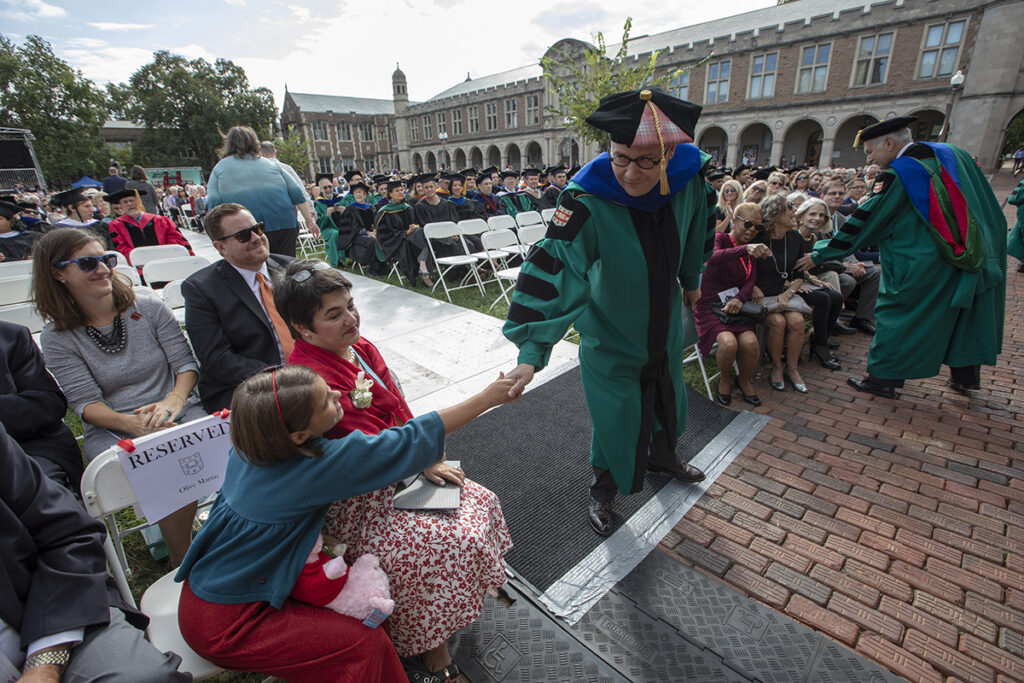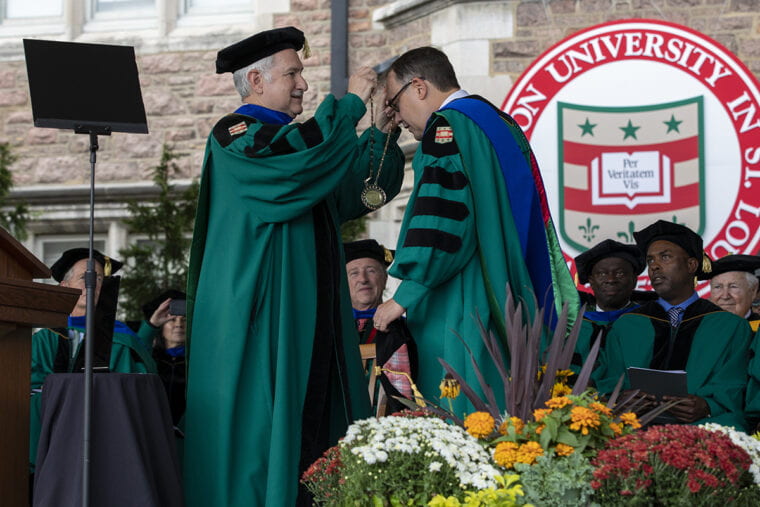In an inaugural address that both celebrated the accomplishments of Washington University in St. Louis and challenged the university community to do more to improve the lives of those in our neighborhoods as well as across the globe, Chancellor Andrew D. Martin vowed to build upon the university’s momentum as a leader in teaching, research and patient care.
Washington University, he said, has accomplished much as an institution of academic distinction — one that has produced transformational and translational knowledge and greatly expanded access to students of all backgrounds. Now, he said, Washington University should leverage its accomplishments to benefit the entire region.
“It’s time to double down on our role and impact in St. Louis,” Martin, the university’s 15th chancellor, said at his inauguration ceremony Oct. 3 in Brookings Quadrangle. “As an institution founded with the very intent to provide increased educational access at the local level, we are Washington University because of St. Louis. We’re proud to be Washington University in St. Louis. And today, I’m calling us to be Washington University for St. Louis.
“I see it as our ‘WashU Compact’ — a commitment between us and the greater St. Louis region as we look to strengthen our community partnerships and impact ‘in St. Louis and for St. Louis.’”
In support of this effort, Martin announced the WashU Pledge, a bold new financial aid program that will provide a free undergraduate education to incoming, full-time Missouri and southern Illinois students who are Pell Grant-eligible or from families with annual incomes of $75,000 or less.

The WashU Pledge covers the full cost of a Washington University education, including tuition, room, board and fees. Eligible undergraduate students already enrolled at WashU also will benefit from the pledge.
“We are making this ‘WashU Pledge’ first because it’s the right thing to do,” Martin said. “In addition, we are Washington University ‘in St. Louis.’ That means we have a unique responsibility to provide opportunity for students in our extended region — to the four corners of Missouri and our neighbors in the southern portion of Illinois. By doing so, we’re attracting our very best and brightest and keeping them right here, close to home.”
Read full story in The Source
